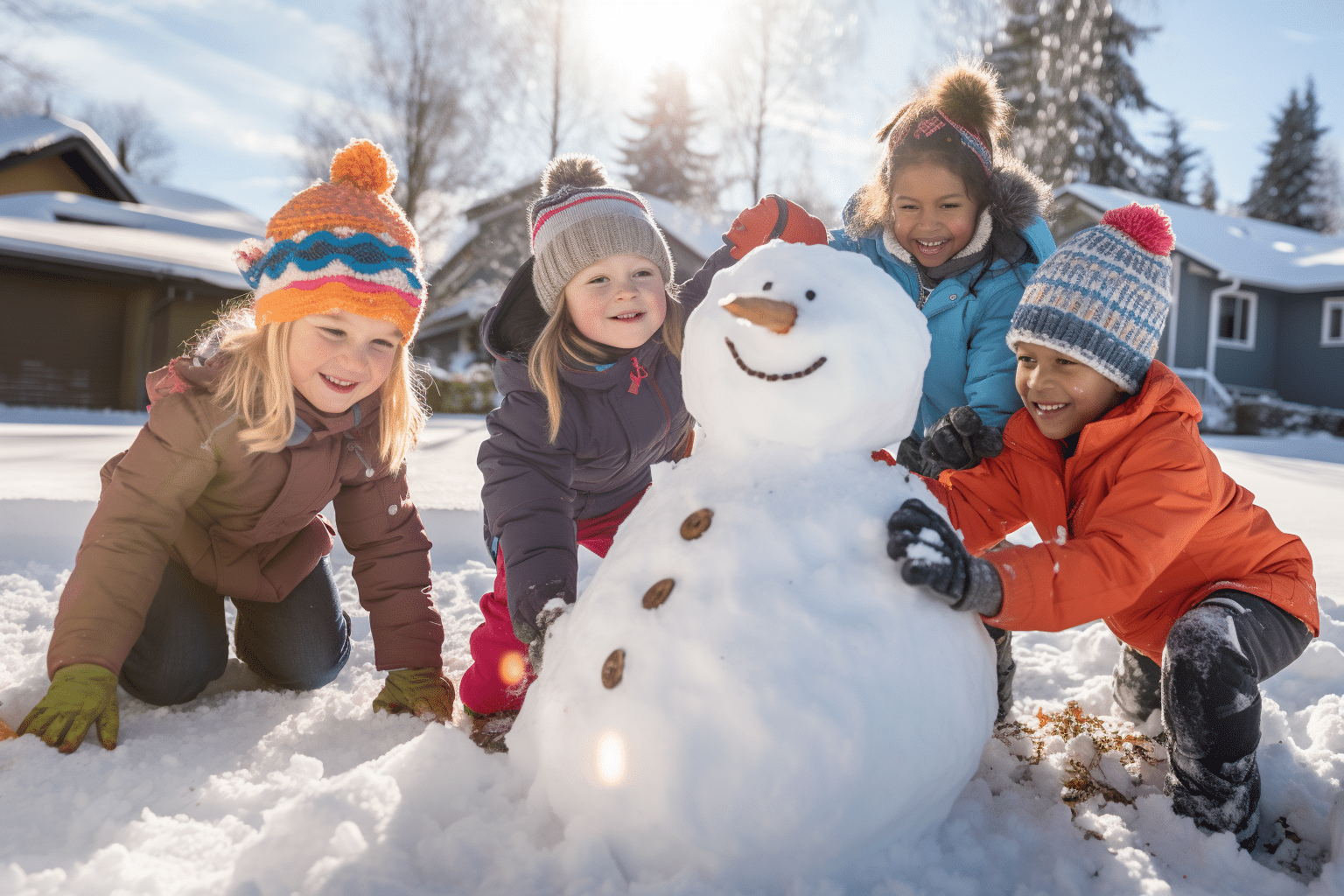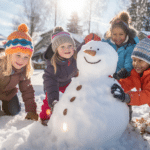It’s the most wonderful time of the year… and possibly the most stressful. Here are some things to keep in mind while you’re managing the holidays and kids with ADHD.
- Avoid the sugar rush
Here’s a biggie to start…While there is no definitive scientific link between sugar and hyperactivity – there is some evidence of one between food dyes and an increase in ADHD symptoms. That being the case, keep in mind that most candies – candy-canes included – contain artificial dyes and it might be a good idea to limit their intake. Some children seem to be very sensitive to these effects and some not at all. You know them best so go by your past experiences to do what’s right for YOUR child! - Get moving!
Instead of staying cooped up inside with family or video games, send them outside to build a snowman, go skating, shovel the driveway! There’s nothing like a good snowball fight to blow off some steam and get kids moving in a healthy way! This will help them be a part of adult conversations when it really counts. - Maintain a sleep routine.
This may be a hard one – Sleep! Lack of sleep can cause a spike in ADHD symptoms, and, if they are a problem, tics. Keep them on schedule as much as you can. - Sensory overload.
Keep the flashing lights and loud noises to a minimum. Some kids are sensitive to flashing lights and loud noises. Keeping them stimulated but not overly stimulated will help them regulate their own symptoms. That sense of self-control is actually a pretty powerful gift. - Have a plan and stick to it!
Avoid last-minute shopping trips with the kids and do your shopping earlier in the season. Crowded malls and crazy traffic are hard enough on your nerves. To kids with ADHD, being overly stimulated is guaranteed to cause some serious meltdowns. Remember, a plan for the holidays only works when it’s shared with those involved. - Have a Holiday Schedule.
Create a visual schedule for each day of the holiday break. Note any outings, visits, parties etc. that will be taking place over the holidays. This will allow for children to anticipate and prepare for any events or activities that are coming up throughout the holidays. - Managing meltdowns.
No matter how I plan and prepare, meltdowns happen. When a meltdown happens you can’t expect a quick fix. When it comes to effective and practical problem-solving strategies, Drs. Almagor and Pearce highly recommend Trina Epstein and Ross Greene’s book “The Adventures of Stretch More: Pick-Your-Path Stories for Solving Problems Together”. You might also want to explore Dr. Greene’s website – Lives in the Balance - Discuss Behaviour in advance.
Don’t think “It goes without saying” and that kids should know how we expect them to behave. Make sure to tell your kids what your expectations are. That means showing them and practicing things like – how to greet guests properly, how to say thanks for gifts and how to “play nicely” with other children. Constructively reviewing past behaviour might be helpful. For instance, if they fought with their cousin last year, go over what happened and role-play how it could go better this year. - Gift ideas:
When it comes to gifts, we suggest giving presents that help develop a child’s abilities. If a child loves to paint – maybe an easel and book about drawing. If they love superheroes, for example, get a drawing book that has superheroes to make the gift look more fun and Discuss bookless ‘educational.’ If video games are more their thing, how about 2 weeks at a computer camp where they can learn to make them and not just play them? - Praise and recognition:
Don’t forget – make sure to praise your kids for their good behaviour, pat them on the back for doing something nice for someone else, pin one of their paintings up on the wall where it can be admired and listen when they want to share a story about their day. Making them feel special, even for a moment during the crazy, hectic holidays, is a gift that really does keep on giving. When giving praise to children it’s always best to be specific in what you say. Don’t just say “You were a wonderful boy.” Instead say: “You played really well with your sister and cousin. You guys made beautiful drawings that made the dining room look wonderful and you made them feel very welcome.” - Prepare to transition back to school.
Near the end of the holiday, ease back into the school routine gradually. Start re-establishing regular bedtimes, waking up times, and mealtimes a few days before school starts. This helps reset their internal clock. Work together to organize school supplies, backpacks, and any materials needed for the first day. Having everything in order reduces morning stress and helps set a positive tone. If there are any changes in teachers, classrooms, or routines, discuss these with your child. Knowing what to expect can alleviate anxiety and increase feelings of control. Create a visual schedule specifically for school days. Include morning routines, class schedules, breaks, and after-school activities. Visual aids provide a clear structure that can be particularly helpful for kids with ADHD. - And last but not least… HAVE FUN!
Accept that not everything is going to go off without a hitch and leave the “perfect” holidays on movie screens where they belong. You’ll be less stressed, they’ll laugh more and everyone will have a happy holiday. Don’t make the holidays a ‘make it or break’ time. Instead, treat them as just another opportunity to learn, practice better behaviours, improve your relationships, and have fun.











